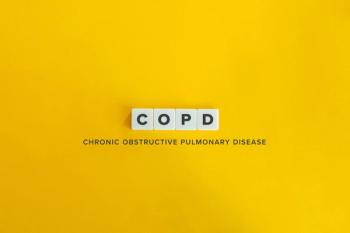
Vitamin Supplement Intake Linked to Fewer Respiratory Complaints In Adults
The UK study examined the cross-sectional association between vitamins A, E, C, and D and respiratory complaints.
Results of a recent study showed that intake of vitamin A and E from diet and supplements, and vitamin D from supplements, was associated with lower self-reported prevalence of respiratory complaints.1
Nutrition plays an important role in preventing many infectious diseases, whereas malnutrition leads to increased morbidity and mortality, according to the study investigators. Moreover, unhealthy diets play a part in chronic inflammation and the body’s impaired defenses against viruses.1
The current coronavirus disease 2019 (COVID-19) pandemic requires not only the management of associated symptoms, but also providing standard supportive nutritional care, the study authors wrote. The American Nutrition Association (ANA) has hypothesized that vitamins A, E, C, and D are beneficial in preventing respiratory infections.1
Considering the evidence from a number of studies, as well as ANA’s report – which speculated that vitamin A supports mucosal tissues, vitamin E plays a role in lung protection, vitamin C supports white blood cells in fighting infections, and vitamin D has shown numerous health benefits, particularly those who are deficient – the study authors asserted that, “there is clearly an urgent need to expand our understanding of how intake of vitamins from dietary sources and supplements could influence the incidence and severity of respiratory complaints.”1
The study examined the cross-sectional association between vitamins A, E, C, and D intake from diet and supplements, and the prevalence of respiratory complaints in a nationally representative sample of adults in the United Kingdom.1
The study, which was published in BMJ Nutrition, Prevention & Health, incorporated 6115 participants from the 2008-2016 National Diet and Nutrition Survey Rolling Program (NDNS RP), a rolling survey that collects information yearly on all food and drinks consumed from an estimated 1000 randomly sampled individuals living in private households across the UK. Participants were enrolled based on their completion of 3 or more days of diet diaries.1,2
Respiratory complaints were defined in part as having weak chest, breathlessness, bronchial trouble, collapsed lung, lung damage by viral pneumonia, and throat infection.1
Investigators reported that intake of vitamins A and E from both diet and supplements was associated with a lower prevalence of respiratory complaints in UK adults. Additionally, vitamin D intake from supplements, but not diet, was associated inversely with prevalence of respiratory complaints in UK adults. The associations persisted after adjusting for age, sex, body mass index, household income, and smoking status.1
The study results also reported 33 cases of respiratory complaints; respondents who related these complaints were generally older and less likely to say that they regularly took vitamins A, E, C, or D supplements.2
Limitations of the study included the small number of cases and the inability to disentangle the direction of causality due to the cross-sectional nature of the study, according to the authors.1
However, the findings “provide some basis for further research into the value of vitamin intake up and beyond recommended dietary intake,” the study authors wrote.1
“Nationally representative data continue to remind us that micronutrient deficiencies are far from a thing of the past, even in higher income nations like the UK, and this trend is mirrored by comparable global data sources from lesser resourced countries to those with advanced health systems,” said Sumantra Ray, executive director of the NNEdPro Global Center for Nutrition & Health in Cambridge and visiting professor of public health at Imperial College London, United Kingdom.
“Despite this, micronutrient deficiencies are often overlooked as a key contributor to the burden of malnutrition and poor health, presenting an additional layer of challenge during the COVID-19 pandemic,” Ray added.
References:
- Almoosawi S, Palla L. Association between vitamin intake and respiratory complaints in adults from the UK National Diet and Nutrition Survey years 1-8. BMJ; October 27, 2020. doi: 10.1136/bmjnph-2020-000150.
- High vitamin A, E, and D intake linked to fewer respiratory complaints in adults. News Release. BMJ Nutrition Prevention & Health; October 27, 2020. Accessed November 3, 2020. https://nutrition.bmj.com/content/bmjnph/suppl/2020/10/27/bmjnph-2020-000150.DC1/Press_release.pdf.
Newsletter
Pharmacy practice is always changing. Stay ahead of the curve with the Drug Topics newsletter and get the latest drug information, industry trends, and patient care tips.























